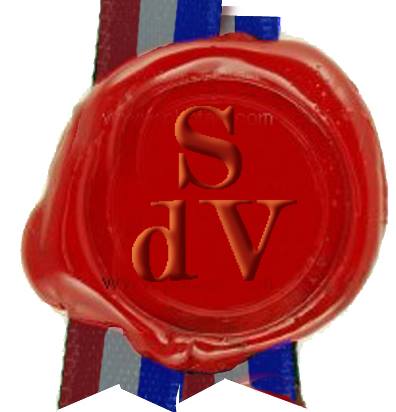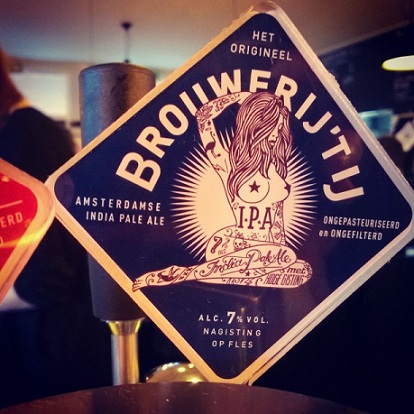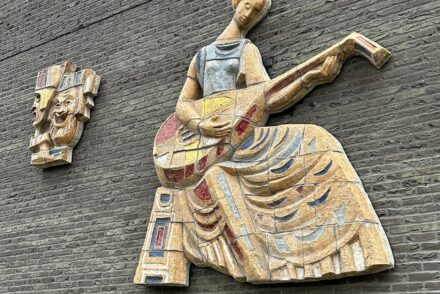Eight Belgian Habits I Lost after Moving to the Netherlands
 A couple of days ago, Jogchum Vrielink* wrote a blog titled “9 Dutch habits I lost after moving to Belgium” for the Flemish expat-blog “Fans of Flanders”. Jogchum moved from the Netherlands to Belgium 15 years ago, whereas the author of this blog went the opposite direction three years ago. As a good friend, Jogchum suggested that the National Sociologist – de Socioloog des Vaderlands – should write a similar English-written** blog from his own experience. And as Emile Durkheim – one of the founding fathers of this discipline – reminded us: sociology is in essence comparative, and what is more interesting than comparing two neighboring countries? Here we go, a rather unscientific experience about the Belgian habits I lost after moving to the Netherlands.
A couple of days ago, Jogchum Vrielink* wrote a blog titled “9 Dutch habits I lost after moving to Belgium” for the Flemish expat-blog “Fans of Flanders”. Jogchum moved from the Netherlands to Belgium 15 years ago, whereas the author of this blog went the opposite direction three years ago. As a good friend, Jogchum suggested that the National Sociologist – de Socioloog des Vaderlands – should write a similar English-written** blog from his own experience. And as Emile Durkheim – one of the founding fathers of this discipline – reminded us: sociology is in essence comparative, and what is more interesting than comparing two neighboring countries? Here we go, a rather unscientific experience about the Belgian habits I lost after moving to the Netherlands.
1. Who’s the King? (whoe-ha)
Whereas the Belgians almost feel ashamed to celebrate the National Holiday, the Dutch go crazy for King’s Day. The July 21st celebrations in the city of Brussels consist of a military parade, a few concerts and some fireworks. They attract approximately 300.000 people who, tous ensemble, shout “vive le roi” (indeed, hardly any Dutch). By contrast, the Dutch Royal family drew a relatively low number of 25.000 fans to the city of Dordrecht. However, 2.5 million people watched the Dordrecht festivities on television, and the numerous parties organized all over the country were a great success. In Amsterdam only, between 600.000 and 800.000 people celebrated Kings Day. Being a resident of the Netherlands, this year I couldn’t resist this rich tradition of getting wasted by 4pm and showing off my sixpack.
2. What’s on the Back of the Tongue?
If there’s one habit that the Dutch are well-known for, then it is being upfront – in every way possible. It already started on my second day in the Netherlands. When doing groceries, I was in an immense queue at the checkout of the local grocery store. Suddenly, a new cash register opened, which I of course ran to (I have a bronze medal in jumping lines after all). But a lady tapped on my shoulder while snubbing me: “YOU WERE BEHIND ME IN THAT LINE!!!!!” (yes, caps and five exclamation marks are needed to exemplify her anger). Integration in the Netherlands simply requires quickly taking over this habit of snubbing people. And I took that opportunity at many different occasions: people jumping the line – well, I’m not so sorry anymore; too much foam on my beer (of course, the Dutch haven’t heard of the world-famous Belgian two finger rule) – I simply ask for a new one; pedestrians that don’t pay attention have been thrown in a canal!
3. Knowing What a Tongue is Made For
I’m not talking about French kissing here (they don’t do that in the Netherlands). As they say in Dutch (or Flemish, at least): “de liefde van de man gaat door de maag” (something untranslatable into English). On virtually every Belgian street corner you are invited by the smell of freshly baked baguettes which end up as tasty sandwiches, for instance the “smos”. By contrast, lunch at Dutch cantinas is often limited to slices of bread with DIY slices of Gouda cheese. If you are lucky, they serve the renowned meat croquette! Dutch food is accompanied by “adventurous” drinks, namely … plain milk, or even better, buttermilk. If there is one point I am unable to concede on, it’s drinking milk during lunch.
Discussing drinks in a blog about differences between Dutch and Belgian habits, one might wonder why I don’t take more easily stance against the Dutch beer. The answer is quite obvious. First of all, there are great Dutch beers on the market. Not only regular lagers, like Grolsch. But Amsterdam also hosts a few microbreweries, including Troost and Brouwerij ‘t IJ. Secondly, major cities are flooded by Belgian beer bars. Cheers!
4. The Soft G
Evidently, the mouth is also used to talk. But being a Belgian immigrant, it is a tough challenge. In the capital city, it frequently happens that people respond to me in English for the obvious reason that I don’t have a strong G or the distinct R. Communication runs both ways. It simply happens that you didn’t understand the opposite party. But be cautious if you drop the Flemish “Watblieft?” (again, untranslatable into English) to apologize. The Dutch will look funny at you, they might start laughing, and then they scream “Wat zeg je?” Utterly – I repeat – utterly confusing!
5. Music Maestro (Please?)
And a mouth is also able to produce music. At least, sometimes. The Dutch love their Smartlappen – trying to come up with an English equivalent, I was thinking of the “crooner”, but Crooner 1.0 – Frank “I did it my way” Sinatra – does not really come close. Sinatra has its Dutch equivalent, thinking about André Hazes and, evidently, Lee Towers. No, people get crazy of Crooner 2.0 that immediately lead to the willingness to dance the polonaise. Known for their “Polonaise Medley” is the boysband “Toppers” (sadly, a bit too old to be called “boys”). Annually, they host concerts at Amsterdam ArenA for, the five concerts combined, approximately 265.000 people or 1.65 percent of the Dutch population. You’d be surprised about the demographics of this audience; something the Socioloog des Vaderlands will blog about next week.
In any case, such an event would be unimaginable in Belgium. Daring to admit to your friends that you’re having fun at a Smartlappen-concert is more embarrassing than getting pantsed after having swum in ice-water. As my integration is proceeding well, it is with proud that I announce I will be attending a “Toppers”-concert next week. Evidently, my appreciation for the Belgian equivalents of Willy Sommers, Christoff, K3, Bart Kaell, Laura Lynn, Regi, and so many others is rather … lukewarm …
6. From A to B (and Back)
Walking in Amsterdam is a serious threat for your health. Even my life insurance was adjusted for “DBB” (death by bike). Having migrated to the Netherlands, it took me 2 years, 8 months and 20 days to get a bicycle. Estimates reveal that with close to one million bikes (still eight million less compared with Beijing, though), there are more bikes than residents in Amsterdam! And sure, ten percent switch owners every couple of months.
The Belgian way of life is completely different, as the adage “My car, my freedom” is widely spread in Belgium. Government heavily subsidizes corporate cars and fuel cards. For many companies, these extra-legal benefits are more lucrative than higher but heavily taxed salaries. The downside of this tax strategy is that Belgians use their car even to get croissants at the local bakery 1 km down the road.
In addition, Belgians don’t have a big heart for public transport. Many trains are delayed – estimates vary because each stakeholder evidently uses its own definition of “delay”. To make sure that trains arrive on time, the national railway company NMBS even extended the rail times. For instance, the trajectory Antwerpen-Brussel takes 43 minutes in 2014 instead of 31 minutes in 1935! Needless to say I love the Dutch NS, in spite of their occasional delays.
7. A Brick in the Stomach
For one reason or another, Belgians (even imported ones) think they have the fundamental right to build a house, wherever they want. Belgians like it big, especially their house. Information shows that Belgians live in houses almost twice the size of Dutch properties. Furthermore, it is extremely interesting that while in Belgium, you rent a place when you’re unable to buy property, in the Netherlands it’s the other way around. If you’re not renting a social apartment (and yes, the Netherlands have a history of social rented housing), prices can be quite high, making it often more profitable to buy your own apartment or house instead of renting one. The world turned upside down!
8. Talk a Lot, Say Nothing
So, at the end of this blog, you have probably diagnosed that the length of this blog is extremely long, at least compared to the other blogs the Socioloog des Vaderlands has produced. Mainly, this can be attributed to the fact that the Dutch talk a lot, while in fact they often say nothing at all. As an outsider, I believe the most logical explanation for this is historical. The 16th century heydays of Dutch trade imprinted the Dutch moral in such a way that this merchant mentality is still embedded in 21st century everyday life. The Belgians, on the other hand, have this mentality of keeping their mouth shut, at least until they have something relevant to add, which, as we all know, also rarely happens. Enjoy the silence!
TR
* Thanks, Jogchum, for editing the first version of this text!
** Geen paniek, de volgende is weer gewoon in het Nederlands.









